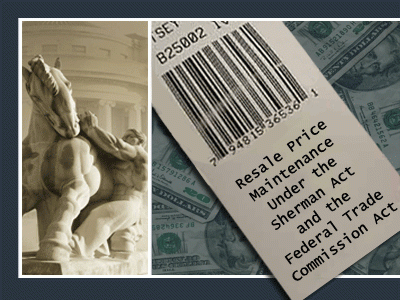FTC Headquarters
600 Pennsylvania Avenue, NW
Washington
DC
20580
Event Description
The Events
The Federal Trade Commission will hold a series of four to six public workshops early next year to explore, for the purposes of enforcing Section 1 of the Sherman Act and Section 5 of the FTC Act, how to best distinguish between uses of resale price maintenance (RPM) that benefit consumers and those that do not. The Commission expects the workshops to focus on legal doctrines and jurisprudence related to RPM, theoretical and empirical economic research, and business and consumer experiences.
Background
RPM typically involves an agreement between a manufacturer and retailer setting the prices at which the retailer will resell the manufacturer’s goods to consumers. If the agreement requires the retailer to sell the goods only at or above prices established by the manufacturer, it is said to be minimum RPM. On the other hand, if the agreement requires the retailer to sell the products only at or below the price established by the manufacturer, it is said to be maximum RPM. Among other things, the workshops will examine when and where particular market facts or conditions make it more or less likely that the use of RPM will be procompetitive or neutral, and when or whether such RPM may harm competition and consumers.
As detailed in the Federal Register Notice announcing the workshops, which is available now on the Commission’s Web site and below, the FTC is requesting public comment from attorneys, economists, marketing professionals, the business community, consumer groups, law enforcers, academics, and other interested parties on three general subjects:
- The legal, economic, and management principles relevant to applying Sections 1 of the Sherman Act and Section 5 of the FTC Act to RPM, including the ability to administer current or potential antitrust or other rules for applying these laws;
- The business circumstances regarding the use of RPM that the Commission should examine in the upcoming workshops, including examples of actual conduct; and
- Empirical studies or analyses that might provide better guidance and assistance to the business and legal communities regarding RPM enforcement issues.
- FileFebruary 17, 2009 (33.76 KB)FileFebruary 19, 2009 (33.97 KB)
- FileFebruary 17, 2009 (56.14 KB)FileFebruary 19, 2009 (64.87 KB)
-
Event Materials

